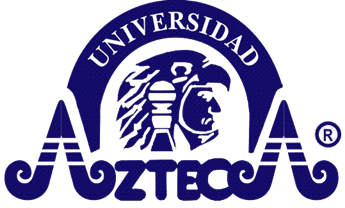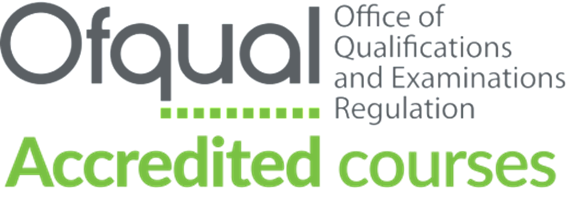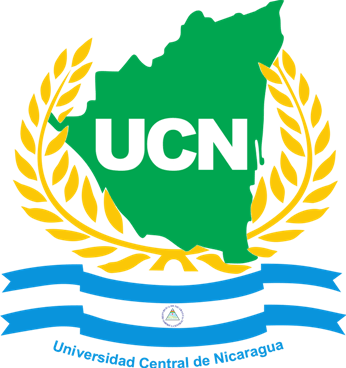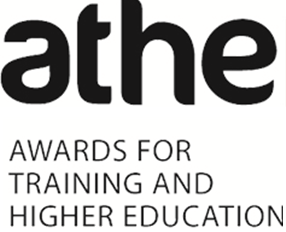Azteca University & its Degrees
Recognition, Accreditation & Validation
About Azteca University
OFFICIAL DIARY
(Third Section)
THIRD SECTION
EXECUTIVE POWER
SECRETARY OF PUBLIC EDUCATION
AGREEMENT number
11/17/17
by which the procedures and procedures related to the recognition of official validity of higher type studies are established.
Article 42.-
Individuals who teach higher type studies without RVOE must mention it in all the documentation they issue and in the advertising they make by any printed or electronic means, for which purpose they must use, in textual form, the following legend:
“STUDIES WITHOUT RECOGNITION OF OFFICIAL VALIDITY”
The studies carried out in these institutions are not recognized by the Federal Educational Authority, so under no circumstances may they be subject to official validity.
The type and size of letter used in said legend must be equal to the largest text that the Individual uses in their own documentation or advertising, which they do by any means, as appropriate.
Universidad Atzeca, a private Mexican University recognised by the Secretary of Public Education SEP, listed in the International Handbook of Universities by International Association of Universities IAU and the World Higher Education Database WHED (IAU-017248), established and incorporated in 1994, with first programme recognitions by SEP in 1997 and chartered as forming part of the national system of education by the Secretary of Public Education SEP of the Mexican federal government:
Official notification of the Registry of Educational Establishments, 9 April 1999, No. 15-00084: registered in the first section of the Book 71-VIII of Educational Institutions, on page 129, as a Private Institution with Recognition of the Official Validity of Studies, awarded by the General Directorate of Higher Education of the Sub-Secretary of Higher Education and Scientific Research of the Secretary of Public Education SEP.
Based on the Decree of the Registry of Educational Establishments, 9 April 1999, No. 15-00084: the Educational Institution has an authorization to conduct studies of the type “Superior”; the Educational Centre can award titles and degrees in conformity with those established in Article 60 of the General Law of Education and 18 of the Law for the Coordination of Higher Education. According the Mexican Higher Education laws Universidad Azteca is authorised to award degrees with official professional recognition and validity and own academic and professional higher degrees of the university.
The term „Universidad“ is a legally protected name and reserved for those postsecondary institutions of higher education offering at least five officially recognised Licenciado (four-to-five years graduate level) or postgraduate degree programmes, in at least three study areas, including arts (humanities).
With main campus and satellite extensions in Mexico Universidad Azteca is a recognised private university incorporated and recognised by Secretary of Public Education (SEP), meeting the legal requirements for name and status of “Universidad” as well as counting on various programmatic and degree recognitions (RVOE) by the federal government Secretary of Public Education (SEP) as well as non governmental programmatic accreditations for some international programmes. Universidad Azteca is subject to supervision and quality assurance by SEP in accordance with Mexican higher education laws.
Nationally, Universidad Azteca operates the Central Campus in Chalco, near Mexico City, and a number of branch campus facilities across Mexico serving domestic students in a variety of programmes ranging from graduate (Licenciado) to postgraduate Master and Doctor levels with RVOE. www.universidadazteca.edu.mx
The university offers Three Academic Systems: Traditional (on-campus), Blended Learning and Virtual E-learning (in a real time) and awards degrees in a variety of specializations study areas.
According the Mexican Higher Education laws Universidad Azteca is authorized to award degrees with RVOE for nationals, and own academic higher degrees of the university (grados propios) without RVOE.
It also has the right to conduct distance studies and to grant the respective Academic Degrees and International Degrees in accordance with Articles 59 and 60 of the General Education Law.
In the United States of America operates a registered university extension, Universidad Azteca USA LLC, with Delaware State File Number: 5829017.
Universidad Azteca European Programmes is registered with the UK Register of Learning Providers. UK Provider Reference Number UKPRN: 10052891
– Programmes expiring on 5. November 2020 will no longer be offered as programmes according to §27 HS-QSG but only as distance education programmes delivered outside austria in a manner not requiring notification to and approval by AQ Austria.
– All students can complete their programme in online modality
– New students enrol in online modality provided outside Austria
In Europe Universidad Azteca European Programmes is the registered non-profit university extension of Universidad Azteca in Innsbruck, Austria, with approval and registration (2012-2022) of the programmes provided in Austria according § 27 Act on Quality Assurance in Higher Education; and a branch in Berlin, Germany, is approved by City of Berlin Scientific Senate according §124a of the Berlin University Law.
The Deanship of European and International Programmes is based in Austria, all programmes provided in Austria were duly approved and registered as provided legally by the Austrian Federal Ministry of Science and Research (2013) and the Agency for Quality Assurance and Accreditation AQ Austria (2015/2017) as comparable to Austrian university programmes and degrees in accordance with the requirements of the Austrian Act on Quality Assurance in Higher Education. The registration will expire in 2022.
Universidad Azteca European Programmes is an approved member of EADL European Association of Distance Education.
Universidad Azteca is a member of ODAEE Organización de la Américas para la Excelencia Educativa. ODAEE awarded the Universidad Azteca Rector Dr. Agustín López González Pacheco in 2013 for his achievements in Education Management.
Universidad Azteca demonstrates overall commitment to quality by the Global Excellence Certificate for the applied Quality Management System awarded by LAQI Latin American Quality Institute and with international programmes accredited by TRACCERT Canada and CONIES, Member of CONIES. is entitled to validate and certify university own programmes and qualifications internationally.Universidad Azteca Quality Management System is ISO 9001:2015 certified by BQS.
Universidad Azteca Higher Education Quality Management System is ISO 29990:2010 certified by BQS.
Universidad Azteca is certified to ISO 9001:2008, ISO 29990:2010 and fully in compliance to IQAAF and BQF international accreditation standards regulated by BQS. Universidad Azteca is recognised and accredited by BQS.
BQS Board of Quality Standards is a company member of the Chartered Quality Institute UK and a member of INQAAHE. The Board of Quality Standards is an independent international quality assurance regulator governed by charter to serve as Quality Assurance Authoritative Body to promote quality assurance in Higher education and certification bodies. The BQS is a quality management certification body for ISO standards complying with the accreditation requirement of ISO 17021.
Universidad Azteca is a certified member of CONIES the Council on International Higher Education Supervision, a non-profit association for the advancement of higher education and accreditation (since 2012). The MBA and DBA, MEd and Dr. Edu and all programmes approved by AQ Austria programmes of Universidad Azteca are accredited by CONIES. The programmes have been accredited as online transnational and as a collaborative provision with partner universities.
Universidad Azteca European Programmes operates a Branch Campus in Geneva, Switzerland, on the premises and in collaboration with AVRIO de Geneve, a higher education provider.
Universidad Azteca offers a number of non-traditional university own programmes internationally, particularly based on Assessment of Prior Learning (APL), Recognition of Professional Qualifications (PQR), and Credits Transfer from programmes of post-secondary education courses and qualifications in order to meet individual requirements of applicants.
Method of learning
The e-learning method offers students the opportunity to complete modules at their own pace from home via the Internet and to take exams online via the e-learning platform. Face-to-face exams and Viva Voce exams are taken both via video telephony and on site, depending on the study modality and the student’s place of residence and the partner university regulations.
The studies at Universidad Azteca are learner-oriented and aim to record and evaluate and largely credit the qualifications, knowledge and skills, preliminary studies and training that an applicant has already acquired in an individual portfolio of the student.
Universidad Azteca offers prospective students the opportunity to complete the modules of a program online via the Internet at their own learning pace, and offers a variety of individual study programs that give a wide variety of personalities and qualification profiles the opportunity to incorporate these qualifications into a study program by largely recognizing the qualifications and to integrate skills (ECVET) in addition to the traditional crediting of university credit points (ECTS).
For the international assessment of credits, Universidad Atzeca applies the requirements of the “Sistema de Asignación y Transferencia de Créditos Académicos (SATCA)” and its conversion factors to the credit points of Universidad Azteca according to the relevant ordinance. 1 year of study in Mexico = 1 year of study in Europe: 75 credits = 60 ECTS.
The university own degrees are not to be confused with the officially recognised programmes and degrees with RVOE offered by Universidad Azteca or with the official dual-degree inter-university programmes validated by UCN and can be earned via the following ways:
Option 1) Recognition of Transfer Credits.
For the learning that can be recognised by credentials and certificates of previously passed tests offer a much less complicated evaluation than is possible with portfolio validation of prior learning.
Candidates who have earned enough credits in prior course-work leading to any degree can transfer their degrees from a variety of sources into one degree awarded by Universidad Azteca in the Advanced Studies area.
This programme is different from the Professional Certification (Professional Studies) and the Validation of Prior Learning (Individual Studies) because it is based entirely on the recognition of transfer credits already earned at the postsecondary level.
Degree requirements for the Master of Advanced Studies or the MBA: At least a professional qualification at level 5 or 6 of the European Qualifications Framework as entry requirement, plus professional documented 60 ECTS credits earned.
Option 2) Professional Certification.
Certification of Chartered, Certified, Statutory or Licensed Professionals in regulated or guilded professions, whereby, the profession must be listed in an applicable National Vocational Qualifications framework at the corresponding level of comparable higher education.
The degree programmes qualified for this award are in the Professional Studies area. The process of validation of professional certification assesses learning as a large body of knowledge with breadth and depth and advanced learning in a single discipline.
Degree requirements for the Master of Professional Studies or the MBA: At least a professional qualification at level 5 or 6 of the European Qualifications Framework as entry requirement, plus professional training, certification and expert experience equal to 60 ECTS credits.
These ad eundem degrees are earned degrees, not honorary, because they recognise formal learning.
Earn credit by Licenses and Certificates
If you have already attained certain licenses or certificates within your chosen profession or areas of interest, you may be well on your way to completing a degree at Universidad Azteca. Universidad Azteca will grant credit for current professional licenses or certificates that have been evaluated and approved for credit by the University´s Academic Council.
Students who have earned one of the licenses or certificates listed must submit notarized copies of the license or certificate and current renewal card (if appropriate) in order to receive credit. In addition, for health-related certifications and licenses, a transcript of the course completed must be issued by the hospital or agency through which they were completed.
Earn credit through workplace learning and Corporate and Business Training Courses
Credit for Courses You’ve Taken at Work
Universidad Azteca recognizes that many adults have acquired knowledge through their everyday work activities and from courses, classes, and seminars completed in the workplace. As a result, you may be eligible for college credit for courses you have taken at work. Universidad Azteca awards credit for employer, union, or professional association courses. Students may be able to earn credit for courses taken at their workplace or through union or professional associations.
Earn credit through credit recommendation
The purpose of Credit Recommendation is to help people obtain academic credit for learning acquired outside the sponsorship of colleges and universities by evaluation and credit recommendations for formal educational programmes and courses sponsored by non-collegiate organizations who are non degree granting and who offer courses to their employees, members, or customers. These non-collegiate organizations include business and industry, labour unions, professional and voluntary associations, and government agencies. The credit recommendations are intended to awarding credit to persons who have successfully completed non-collegiate sponsored instruction. In this way, students will be assisted in receiving academic credit for learning gained through such instruction.
The recommendation is based on the proposition that it is sound educational practice for colleges and universities to grant academic credit for quality educational programmes conducted by non-collegiate organizations, provided that the courses are appropriate to an individual’s educational programme.
Option 3) Validation of Prior Learning.
A process by which individuals can claim and gain credit toward qualifications based on their prior learning and sometimes experience (often called experiential learning). Credit to be given where there is evidence that the experience or learning has resulted in the student achieving the appropriate and clearly expressed learning outcomes.
The legal basis in Mexico for recognition of non traditional individual prior learning is regulated by the ACUERDO NÚMERO 286, implementing the UNESCO Recommendations for Validation and Recognition of Prior Learning.
Universidad Azteca offers a number of assessment options that might be appropriate for students who have acquired college-level learning from prior study or experience. Universidad Azteca applies the university own standards, combining the following guidelines and frameworks: Acuerdo 286 (mentioned above), the French VAE: Validation des Acquis de l’Expérience, and the Irish HETAC Standards for PLA, countries allowing for the recognition of prior learning at all three academic levels including NVQ level 8.
Degree requirements for the Master of Individual Studies: At least a professional qualification at level 6 of the European Qualifications Framework as entry requirement, plus an accepted portfolio validation of prior learning equal to 60 ECTS credits.
Earn credit through Portfolio Assessment
Portfolio assessment helps students define and demonstrate both their formal and informal learning in terms of college courses. Portfolio Assessment is a flexible, efficient way of earning college credits for what you have learned outside the classroom. Universidad Azteca has already helped applicants in earning credits based on their knowledge. Moreover, these credit awards are honored by our partner universities. Like all programmes offered by Universidad Azteca, Portfolio Assessment operates on the belief that college-level learning, no matter how it is gained, warrants credit. Therefore, nearly any area of learning can be converted into college credits as long as it is taught at a recognised or accredited college or university and you can prove your expertise in it. A portfolio is a compilation of data assembled in an approved format to demonstrate college-level knowledge for an award of credit. Often compiled like a notebook, each portfolio generally represents one course. The portfolio you submit to Universidad Azteca will serve as proof of your expertise and the value it has in the academic world. It can include knowledge or skills gained from a wide variety of sources, but these are some of the more common ones used for Portfolio Assessment:
- Full or part-time jobs
- independent reading and study
- training programmes or in-service courses
- volunteer work
- cultural and artistic pursuits
- hobbies and recreational pastimes
- community or religious activities
- military service
- travel study
- organization memberships
Putting your portfolio together is a simple, step-by-step process:
- Take inventory of your knowledge and skills.
Review your job history, hobbies, areas of study or special training, volunteer work and other activities noted above. Then make a list of all the areas of knowledge and skill you have acquired as a result of these experiences.
- Choose the areas for which you want to seek college credit.
Evaluate each area of your prior learning to determine which ones to select for Portfolio Assessment. Your decision about each subject area should be based on two factors: whether you can prove that your knowledge is equivalent to a college-level course and whether you need college credits in that subject. If you have partial knowledge of a subject, and wish to acquire more, the Portfolio Study option may be right for you.
- Find course descriptions to match your learning.
For each subject you have chosen, search a university course database to locate a description which best reflects your knowledge. Search through catalogues from accredited colleges and universities. The catalogue entries you select must represent courses taught in credit hours at accredited colleges or universities. Please note that if you select a course description from another institution’s catalogue, there is no guarantee that it will be assigned the same or a similar number by Universidad Azteca. With the exception of medicine and veterinary medicine, any college-level subject is eligible for Portfolio Assessment.
- Provide evidence of your knowledge.
Assemble a package of material that documents your knowledge of the subject. This may include samples of your work, a resume, notes taken in training courses, transcripts, an annotated bibliography, letters of verification from employers or others who have first-hand knowledge of your abilities, or any other material that offers proof. If solid evidence is lacking, you may request an examination. Exams are available on a limited basis and may be oral or written, depending on the subject matter or requirements of the faculty consultant.
The first stage in the assessment process is the determination of whether the learning has already been evaluated as part of an assessment of prior learning programme. If it is determined that credit has already been so evaluated, applicable credit is awarded based on the prior evaluations of the corresponding evaluators and no individual assessment is conducted. Universidad Azteca accepts any official validation of prior learning conducted in accordance with the laws of the country where the validation was issued, particularly the European Validation Framework, Canadian, Australian, US (California Prior Learning Assessment & Recognition (PLAR) Manual; Excelsior College Flexible Assessment; Thomas Edison State College Assessment of Prior Learning Handbook; Empire State College Credit by Evaluation; Ohio State University Portfolio Assessment; Charter Oak State College Portfolio Assessment), and similar standards based on CAEL recommendations are accepted.
The International Association for Continuing Education and Training is a non-profit association dedicated to quality continuing education and training programs. IACET authorizes education providers that meet strict continuing education guidelines created in 1968. IACET certification is the standard learners seek for quality. IACET’s Criteria and Guidelines are the core of thousands of educational programs worldwide. Universidad Azteca accepts IACET Continuous Education Units CEU´s.
Professional and life-long learning qualifications based on ECVET credits are accepted.
- Describe what you know and how you learned it.
Write a narrative that outlines your learning, explains how your knowledge was acquired and introduces the materials you are providing as evidence. This statement, which may be anywhere from three to ten pages in length depending on the type of course involved, is your forum for persuading the faculty consultant that you have accumulated enough knowledge to warrant credit for the subject. Portfolio advisors encourage students to submit a rough draft of the narrative, prior to final submission, so they can review it and provide useful advice.
- Put it all together.
After you have selected a course description, written an appropriate narrative and collected sufficient evidence to prove your knowledge to the faculty consultant, your portfolio is complete and ready for packaging. Each subject must be packaged in a separate folder or binder, since not all of your courses may be reviewed by the same faculty consultant. The exceptions are courses which are closely related, such as Social Science I and II. Foreign language courses in the same language, regardless of the number of credits represented, are packaged as one, single portfolio. The Portfolio Cover Sheet with the course description should be placed at the front of your portfolio, followed by the narrative and, finally, your evidence. A table of contents is required. If you are uncertain as to whether your courses are closely linked enough to be packaged together, check with a portfolio advisor.
All information in your portfolio should be typewritten and double spaced. Each page should be numbered. The materials in your portfolio should be arranged in the following sequence:
- Portfolio Cover Sheet with a clear photocopy of the course description taped to the space provided on the form
- Table of Contents listing all items included in the portfolio
- Narrative written clearly and grammatically correct
- Evidence organized in the sequence in which it is mentioned in the narrative and preferably numbered or otherwise labeled.
- Submit the portfolio.
Your portfolio should then be mailed to your portfolio advisor. He/she will review it and, if it appears to be complete, will forward it to a faculty consultant for assessment.
Once it is submitted, the portfolio will be considered an academic record which belongs to Universidad Azteca. At that point, it cannot be returned to you. Therefore, be sure to keep a copy of each item in the portfolio for your own records, and do not send any original documents which you may need in the future.
The Assessment of Your Portfolio
Each portfolio is assessed by a faculty consultant who has expertise in that particular subject. The faculty consultant will determine whether or not your knowledge of the subject is equal to a college-level grade of “pass” or better. If so, then he/she will recommend that you receive credit. You will not receive a letter grade. If your knowledge is judged to be insufficient, the faculty consultant will recommend that credit be denied. If the faculty consultant decides that more information is needed in order to make a determination, you may be asked to submit additional evidence, take an examination or be interviewed. The latter practices are often used in cases where students have acquired knowledge of a subject that cannot be documented.
There is no limit to the number of credits you may earn through portfolio assessment.
It is possible that students earn enough portfolio credits to meet their degree requirements.
Option 4) Validation of Degree.
Degree Validation
The prior learning assessment grado propio programmes of Universidad Azteca are ideal for qualified professionals earning a university degree based on their qualifications, licenses, skills and experience and who do not need an accredited or recognised degree rather than a university own degree awarded by a recognised university to demonstrate their individual level of education in a given area or field of expertise. A grado propio or university own degree reflects that the graduate has earned a degree at postsecondary education level awarded by an officially recognised university.
LEGAL INFORMATION
The international online courses offered by Universidad Azteca European Programmes are stand-alone university own (grado propio) Bachelor, Master and Doctor courses without national programme accreditation RVOE in Mexico and the degrees are legally awarded in accordance with Art. 59 of the General Law on Education.
Additionally, Universidad Azteca offers inter-university collaborative provision of dual-degree award Master and Doctor courses with partner universities in Latin America and Europe.
DOUBLE DEGREE PROGRAM
The BMWF (BMWF-52.290 / 0046-I / 6/2013) reported on the study programs that are registered in Austria:
The “double degree programs” between the Universidad Azteca (UA) and the Universidad Central de Nicaragua (UCN), which are registered in accordance with Section 27 of the Higher Education Quality Assurance Act (HSQSG), are study programs offered by two recognized foreign post-secondary educational institutions.
These are study programs at the respective foreign universities and degrees from these foreign universities. The study program at the Universidad Azteca is not a study program with official recognition, but a study program comparable to a university course in terms of terminology according to A









